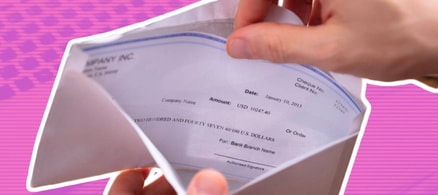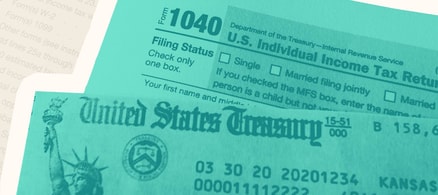Know your dates
There’s something to be said for getting your taxes done and out of the way as early as you can.
The IRS officially starts accepting and processing individual tax returns on Jan. 23.
If you plan to put it off a little longer, there are several important tax deadlines you should keep in mind for the 2023 season.
If you’re just not sure where to start, the IRS is holding its annual Earned Income Tax Credit awareness Day on Jan. 27 to make sure people know about the various ways they can reduce they can reduce their taxable income.
For most taxpayers, the deadline to file your return is April 18. If you’re granted an extension, you’ll have until Oct. 16 to file.
The IRS has said they anticipate that you will receive your refund within 21 days of electronically filing your return if you choose direct deposit and there are no issues with your return.
Meet Your Retirement Goals Effortlessly
The road to retirement may seem long, but with WiserAdvisor, you can find a trusted partner to guide you every step of the way
WiserAdvisor matches you with vetted financial advisors that offer personalized advice to help you to make the right choices, invest wisely, and secure the retirement you've always dreamed of. Start planning early, and get your retirement mapped out today.
Get StartedGather your information
Tax preparation and filing requires you to fill out a lot of forms. The more organized you keep them, the easier the whole process will be.
Having the right information at your fingertips can make the world of difference when it comes to your stress levels.
Start simple. You need to make sure all of your personal information is up-to-date and in front of you, including your full name (as it appears on your Social Security card), date of birth, Social Security number, home address. You’ll also need to submit your bank account information if you want to set up a direct deposit for any refunds you might receive.
You will also need your individual taxpayer identification numbers, adoption taxpayer identification numbers and this year's identity protection personal identification numbers (IP PIN). Taxpayers should get a unique 6-digit code with instructions on how to use it through an IRS-issued CP01A notice.
Report all of your income
The reality is most income is taxable. Until you sit down to do your taxes, you might not realize how many income streams you have. Getting this right is important if you want to avoid processing delays and speed up your potential payout.
Reporting your employment income should be fairly straightforward, using a 1040 form. Your employer should give you a W-2 form, which will give you all the information you need.
The W-2 includes the amount of federal, state and other taxes withheld from your paycheck. It also details other employer fringe benefits like health insurance, adoption and dependent care assistance, health savings account contributions and more.
You may also receive one of the various 1099 forms, where you should report things like self-employed income, unemployment compensation, state or local tax refunds, retirement plan distributions, Social Security benefits, income earned from rent or royalty payments, and investment income earned through interest, dividends or stock sales.
Stop overpaying for home insurance
Home insurance is an essential expense – one that can often be pricey. You can lower your monthly recurring expenses by finding a more economical alternative for home insurance.
SmartFinancial can help you do just that. SmartFinancial’s online marketplace of vetted home insurance providers allows you to quickly shop around for rates from the country’s top insurance companies, and ensure you’re paying the lowest price possible for your home insurance.
Explore better ratesMake the most of tax breaks
Now for the good part: tax credits and deductions.
There are many ways to reduce your taxable income. Taxpayers can claim deductions on things like student loan interest payments, home office expenses, self-employed health insurance payments, education expenses, mortgage interest, and charitable contributions.
Tax credits can also help you get some money back from the government. Common credits include the Earned Income Tax Credit, Child Tax Credit, Dependent Care Credit, education credits, residential energy credits, and health care credits, among others.
Time spent learning about which tax bracket you fall into and what deductions and credits you are eligible for will certainly pay off.
Use tax software
Tax preparation and filing can be daunting — but online tax software can help ease the burden.
The right tax software can make filing your federal and state tax returns surprisingly simple and ensure you take advantage of the money-saving opportunities available to you.
These products will typically connect you to an expert if you have questions or need more help as you go.
If your income is under a certain amount and you want to save on fees, you might qualify to use a free IRS filing program.
Help your future self
Do taxes also terrify you?
While the above tips might help you navigate the twists and turns of this year’s tax season, now is also the time to help your future self.
You can avoid the annual agony by starting a filing system for all of the relevant documents you gather throughout the year .
This can be as basic as throwing all relevant tax slips, receipts and income statements into an old shoe box or plastic bag — or even better, using a digital filing system or bookkeeping software.
This will give you a head start and should take some of the stress out of this process in the future.
Sponsored
Follow These Steps if you Want to Retire Early
Secure your financial future with a tailored plan to maximize investments, navigate taxes, and retire comfortably.
Zoe Financial is an online platform that can match you with a network of vetted fiduciary advisors who are evaluated based on their credentials, education, experience, and pricing. The best part? - there is no fee to find an advisor.







